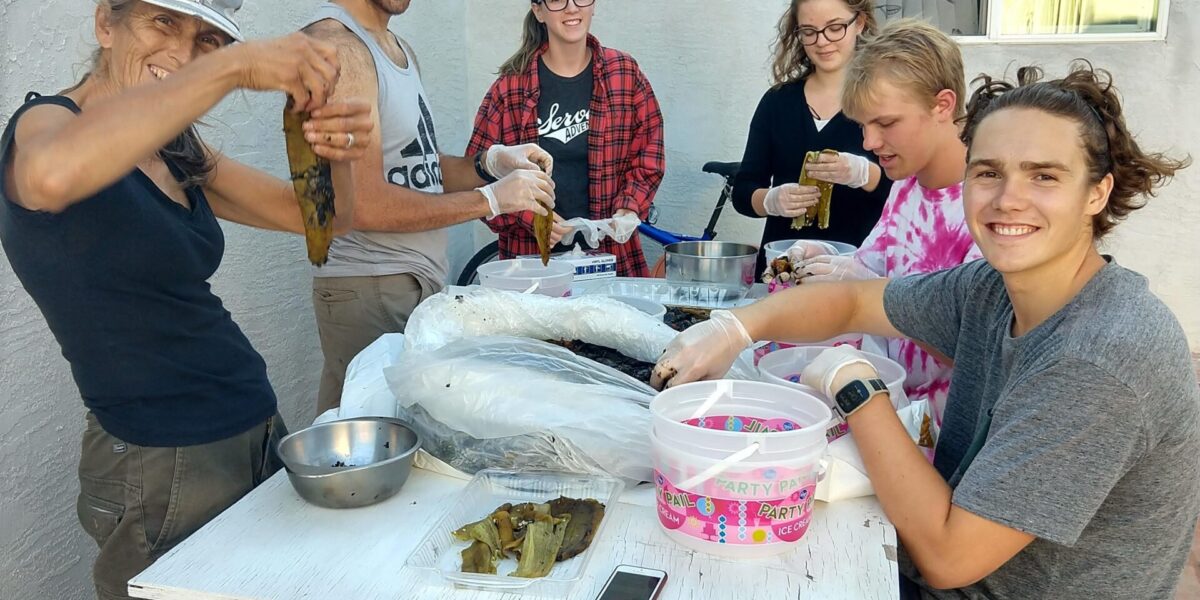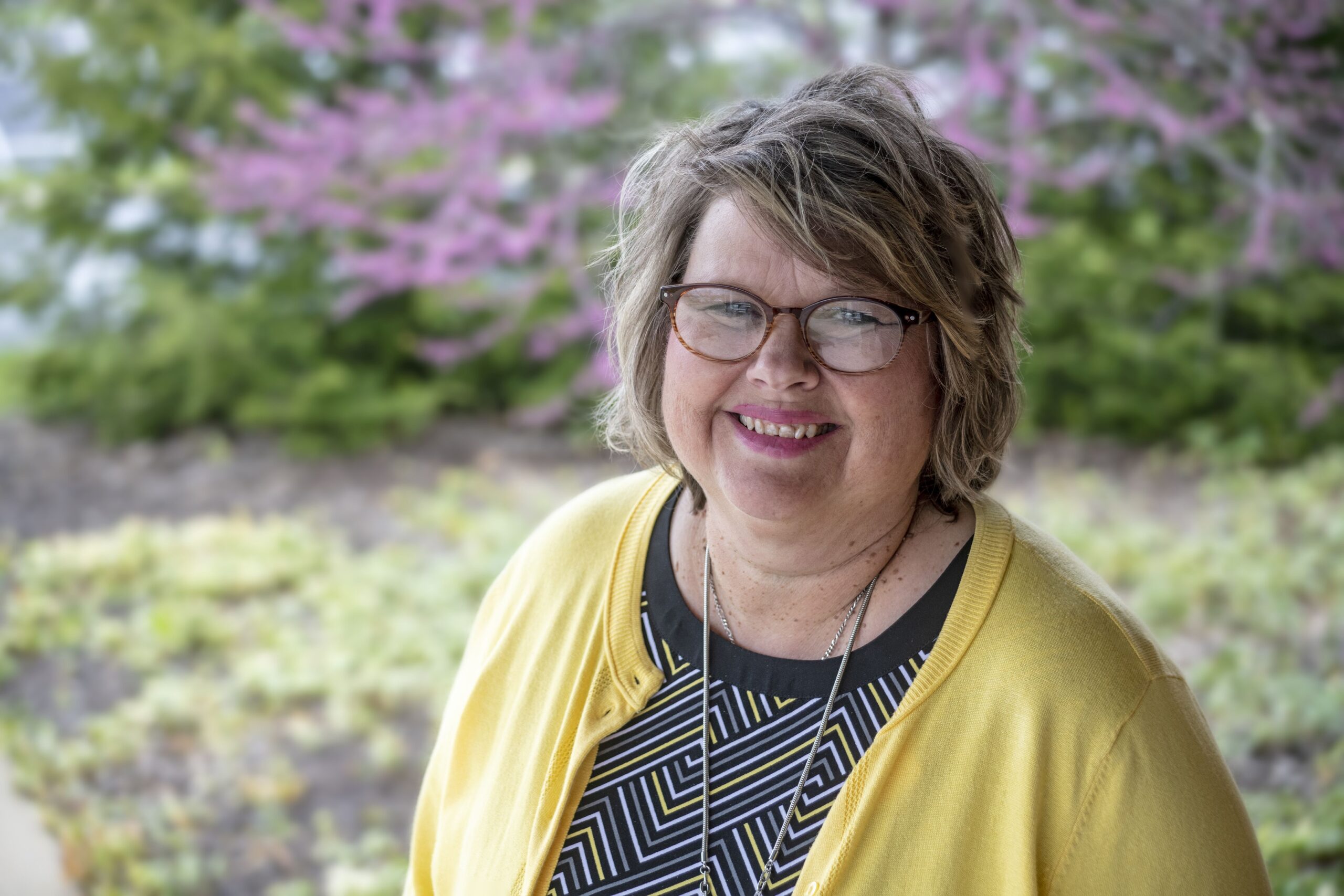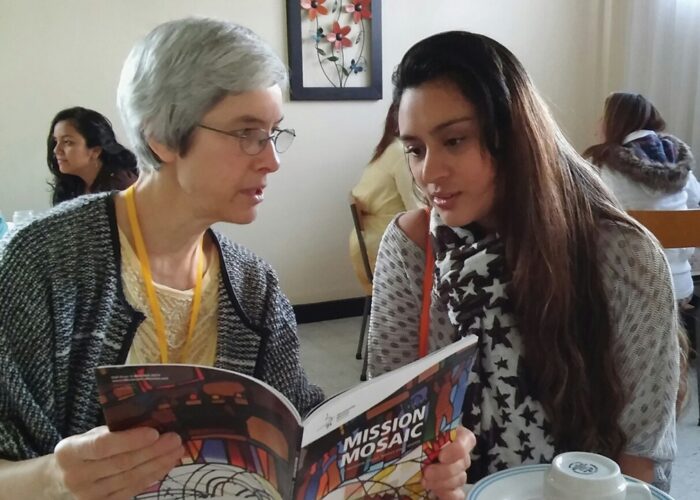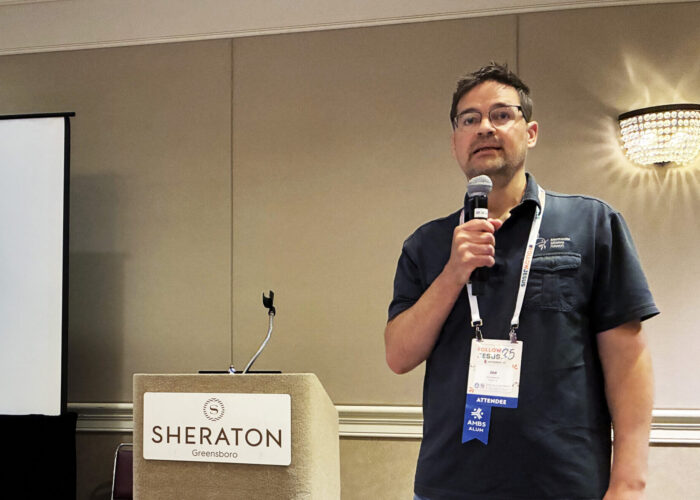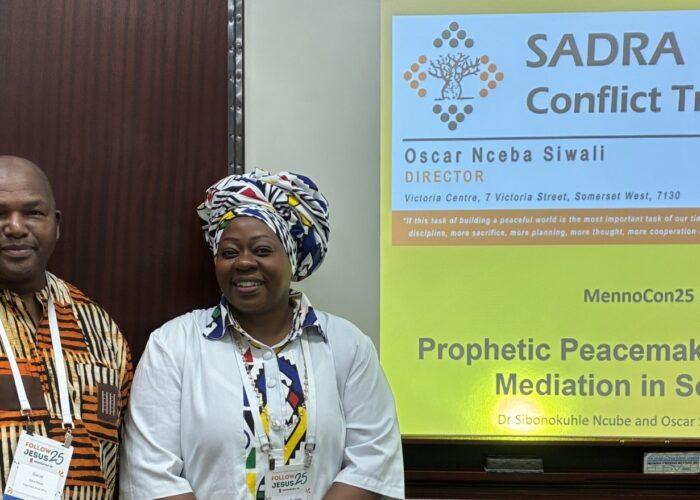Editor’s Note: This is the first story in a series describing the experiences of Service Adventure units’ host congregations. This Mennonite Mission Network program, birthed in 1989 by Mennonite Board of Missions, a Mission Network predecessor agency, is designed for 17- to 20-year-olds, as a gap year between high school and college. The five Service Adventure units are located in: Albuquerque, New Mexico; Anchorage, Alaska; Colorado Springs, Colorado; Jackson, Mississippi; and Johnstown, Pennsylvania.
NEWTON, Kansas (Mennonite Mission Network) — Not fires, nor finances, nor any other problem has been able to squelch the fortitude of Albuquerque (New Mexico) Mennonite Church (AMC) in sponsoring 96 participants and unit leaders in its Service Adventure unit since 1998.
Secure in its sense of calling, AMC has persevered in its partnership with Mennonite Mission Network in empowering 17- to 20-year-olds to serve and to grow in the 10-month program, said AMC members during a recent Zoom call interview with Susan Nisly, Service Adventure director.
For example, when AMC’s rental unit caught fire in 2012, the congregation found another rental and the unit moved. When footing the bill for participants’ room and board and transportation stretched AMC, the congregation covered the costs through the church budget and additional gifts and fundraisers. When participants navigated new responsibilities, mental health issues and placement stresses, the unit leaders — the key mentors for the young adults — and Albuquerque Service Adventure Unit Committee members had their backs.
Given the assurance of Romans 8 — that no seeming impossibilities will separate them from the possibilities of God’s love and the healing and hope of service — AMC continues to follow Jesus forward.
"Any number of things have happened over the years that the committee has to deal with — including the fire, or someone going home because of a bike accident," said Carolyn Snyder, co-chair of the Albuquerque Service Adventure unit committee. "In all these things, the members of the support committee have endeavored to be supportive, as well as to bring in others who have expertise in dealing with specific matters. There have been many times while being on the committee that I have felt some things were way over my head, but somehow, God and the goodwill of our AMC family have always provided."
AMC’s perseverance stems from Mennonites’ long legacy of working for peace and justice, as well as the caring and supportive congregational culture, said Ken Gingerich, a longtime AMC member.
"In the late 1960s through mid-70s, a Mennonite Voluntary Service (MVS) unit in Albuquerque [associated with the former Bethel Mennonite Church] drew a lot of conscientious objectors to the Vietnam War," Gingerich said. "But when the war was over, those young men weren’t coming anymore. … We felt we were ready to draw a new generation of young people into service here."
About 60% of AMC’s members do not come from traditional Mennonite backgrounds, Gingerich shared. "Because of that, we model what it means to practice mutual acceptance of diversity," he said. "People from diverse backgrounds share a common experience. We are an energetic and creative community."
Stretching in a safe place
The non-traditional congregation and community provide spiritual and emotional safety, coupled with perspectives that stretch the worldviews of participants, Snyder said.
"Many of the participants here, in the Southwest, grew up in the Midwest or the East, in relatively conservative congregations and neighborhoods that aren’t as multiracial," she said. "There can be a sticker shock for some of the young people."
Simultaneously, however, AMC provides a soft landing and a safe place to stretch, Gingerich said.
"Mission Network does a great job of orienting the participants, regarding the adventure part of their service that awaits them in Albuquerque," he said. "There is a spiritual depth here that is palatable, and the young people get it pretty quickly that they don’t have to pretend; they can be who they truly are."
Committee co-chair, Carolyn Johns, agreed that AMC provides a rare combination of challenges for young people to grow but at a pace and in a way that fits them personally.
"One of my biggest joys is watching how some of these young folks grow and change," Johns said. "I think of a participant from a small community in the East. She was an amazing young woman and really blossomed when she had some new space to explore who she was, apart from her childhood experience."
Johns also described a young man who came into the program from a divorced familyf. "He was very close to his father but not to his mother, and he came out here very lonely," Johns said. "He spent a lot of time with my husband, John, working on motors. This relationship-building helped to provide the young man with a lot of self-confidence."
Nisly agreed. "Sometimes participants come from smaller towns, where they get labeled a certain way," she said. "Service Adventure can give them a fresh start."
That fresh starts begins day one. For example, during the first week of orientation, committee members host participants and unit leaders for dinner and take them on a tour of the city and its bus routes. "People really step up," Synder said. "We also host a food shower and potluck."
Participants are then launched, with prayer and support, into service placements, which over the years have included non-profit neighborhood initiatives, after-school programs, ministries to the homeless, Habitat for Humanity, a Montessori school, and custodial work at an apartment building.
Fun outings are also encouraged amid the abundance of the region’s cultural, artistic and outdoor activities, including hiking, biking, camping and the yearly hot air balloon festival. Unit participants and leaders also attend Rocky Mountain Mennonite Camp’s snow camp in Colorado.
"We don’t consider volunteers as extensions of ourselves but encourage mutuality, a joint effort," Gingerich said. "Every year, that process unfolds a little differently, but it is always fun to watch. And it is always teary when it comes time for us to separate and for the young adults to go their own way."
Given the formation in God’s inseparable love and presence, affirmation of personhood, and experience in service, participants likely have a deeper sense of not walking alone.

